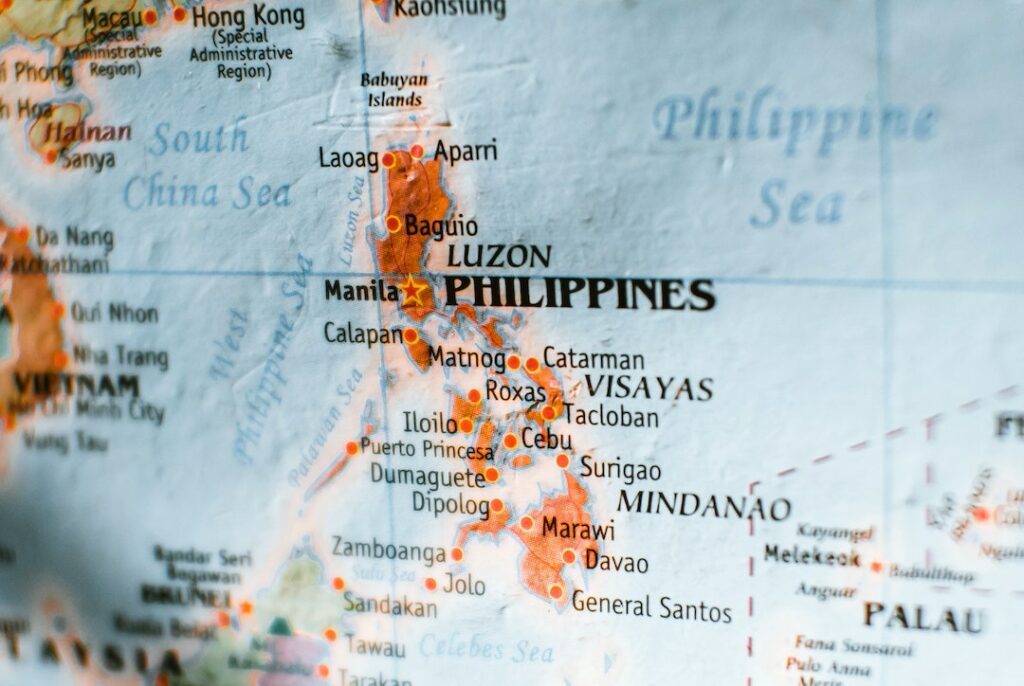To live comfortably in the Philippines, you may need around PHP 50,000 to 80,000 per month. This estimate includes rent for a decent apartment, utilities, groceries, transportation, healthcare, and leisure activities.

Housing Costs
Renting vs Buying
Renting:
- Monthly rent for a one-bedroom apartment in the city center: PHP 15,000 – 40,000
- Monthly rent for a one-bedroom apartment outside of the city center: PHP 8,000 – 20,000
- Security deposits: Typically equivalent to 1-3 months of rent
Buying:
- Average price per square meter in the city center: PHP 100,000 – 250,000
- Average price per square meter outside of the city center: PHP 50,000 – 150,000
- Down payment: Typically 10-30% of the property price
- Closing costs: Vary, but often around 3-6% of the property price
Utility Bills
| Utility | Average Monthly Cost Range | Factors Affecting Cost |
|---|---|---|
| Electricity | PHP 3,000 – 10,000 | Usage, Location |
| Water | PHP 300 – 1,500 | Household Size, Location |
| Gas (Cooking) | PHP 500 – 2,000 | Usage |
| Internet | PHP 1,000 – 3,000 | Plan, Provider, Location |
| Cable TV | PHP 300 – 800 | Plan, Provider, Location |
Property Taxes
Annual Tax:
- Generally around 1-2% of the assessed value of the property
Zonal Values:
- Vary significantly by location, consult the local BIR office or municipal hall for specifics
Penalties for Late Payment:
- Penalties can range from 2% per month, up to a maximum of 72% of the unpaid amount
Exemptions and Deductions:
- Some exemptions apply for certain types of property (e.g., property used for religious, charitable, or educational purposes). The specific exemptions can vary.
Daily Living Expenses
Food and Groceries
- Local Markets:
- Vegetables and fruits: PHP 150 – 300 /kg
- Fresh meats: PHP 200 – 400 /kg
- Fish and seafood: PHP 150 – 400 /kg
- Supermarkets:
- Weekly family groceries: PHP 2000 – 5000
- Dining Out:
- Street food: PHP 20 – 50 /serving
- Restaurant meals: PHP 200 – 1000 /person
Transportation
- Jeepneys and Tricycles:
- Jeepney fare: PHP 9 – 20 /ride
- Tricycle fare: PHP 10 – 50 /ride
- Taxis and Ride-Sharing Apps:
- Taxi base fare: PHP 40
- Ride-sharing average fare: PHP 150 – 300 /trip
- Private Vehicles:
- Gasoline: PHP 50 – 60 /liter
- Vehicle maintenance and servicing: PHP 2000 – 8000 /session
Health and Medical Costs
- Doctor Visits:
- General practitioner consultation: PHP 500 – 1500 /visit
- Specialist consultation: PHP 1000 – 2500 /visit
- Health Insurance:
- Annual health insurance premium: PHP 15,000 – 50,000
- Medications and Pharmacy Costs:
- Common prescription medicines: PHP 500 – 2000 /month
- Common over-the-counter medicines: PHP 100 – 500 /month
- Hospital Care:
- One night in a general ward: PHP 2000 – 5000
- One night in a private room: PHP 5000 – 10,000
- Emergency medical care: PHP 5000 – 20,000 /instance
Lifestyle Choices and Entertainment
Making choices that align with your budget is essential, as entertainment expenses can vary greatly. Whether you enjoy dining out, traveling, or engaging in hobbies and leisure activities, there’s an option to fit nearly every budget.
Dining Out and Social Activities
- Casual Dining:
- A meal at a mid-range restaurant: PHP 300 – 1500 per person
- Fine Dining:
- A three-course meal at a high-end restaurant: PHP 1,500 – 5,000 per person
- Social Activities:
- Movie ticket: PHP 200 – 400
- Drinks at a bar or club: PHP 100 – 400 per drink
- Concert or theater ticket: PHP 500 – 5,000
Travel and Vacation
- Local Travel:
- Domestic flight: PHP 1,000 – 5,000 one way
- Bus journey between cities: PHP 300 – 1,500 one way
- Accommodations:
- Budget hotel: PHP 1,000 – 2,500 per night
- Luxury hotel or resort: PHP 5,000 – 20,000 per night
- Activities:
- Tour packages: PHP 1,000 – 5,000 per day
Hobbies and Leisure Activities
- Sports and Fitness:
- Gym membership: PHP 1,000 – 3,000 per month
- Yoga class: PHP 400 – 1,000 per session
- Crafts and Hobbies:
- Art supplies: PHP 500 – 5,000
- Musical instrument lessons: PHP 500 – 2,000 per hour
- Outdoor Activities:
- Scuba diving course: PHP 10,000 – 20,000
- Trekking and adventure tours: PHP 500 – 3,000 per trip

Family Costs
Family costs are a significant part of the budget for those raising a family in the Philippines. These costs can vary dramatically depending on the lifestyle choices a family makes, such as the type of schooling for children, healthcare plans, and additional needs like insurance and leisure activities.
Childcare and Education
Childcare and education are among the most important expenses for families in the Philippines. The costs can vary widely depending on whether you choose public or private education, and the level of the school or university.
| Item | Estimated Cost Range (PHP) |
|---|---|
| Daycare | 3,000 – 10,000 per month |
| Private Elementary School | 50,000 – 150,000 per year |
| Private High School | 80,000 – 200,000 per year |
| Public School | Free, but with miscellaneous fees of 1,000 – 5,000 per year |
| College Tuition | 20,000 – 150,000 per semester |
| Tutoring | 300 – 1,000 per hour |
For further details, read Education in the Philippines.
Family Healthcare
Healthcare is a vital concern for families. Costs can add up, especially without health insurance. Here is a table detailing potential family healthcare expenses:
| Item | Estimated Cost Range (PHP) |
|---|---|
| Family Health Insurance | 30,000 – 150,000 per year |
| Pediatrician Visit | 500 – 1,500 per visit |
| Maternity Package | 20,000 – 150,000 |
| Dental Check-up | 500 – 3,000 per visit |
| Prescription Medicines | 500 – 5,000 per month |
Additional Family Needs
Beyond education and healthcare, families have additional needs that are essential for their well-being and quality of life.
| Item | Estimated Cost Range (PHP) |
|---|---|
| Family Car (purchase) | 700,000 – 2,000,000 |
| Family Vacation | 20,000 – 200,000 |
| Insurance (Life, Car, Home) | 15,000 – 100,000 per year |
| Leisure Activities | 2,000 – 20,000 per month |
Regional Variations
The cost of living in the Philippines can vary greatly from one region to another. Factors influencing these differences include the local economy, lifestyle, and availability of goods and services. Understanding these regional variations is crucial for anyone considering relocating within the Philippines, as it will have a direct impact on your budget and lifestyle.

Urban vs Rural Costs
- Urban Areas:
- Living in urban areas such as Manila, Cebu, and Davao often means higher costs. The prices for housing, transportation, and general goods and services tend to be significantly more expensive in cities.
- For example, rent for a one-bedroom apartment in the city center of Manila may range from PHP 20,000 to 50,000 per month.
- In urban areas, dining out and entertainment options are more abundant, but also come at a premium.
- Rural Areas:
- On the other hand, rural areas often have a lower cost of living. The slower pace of life and closer-knit communities in the provinces translate to lower expenses for housing and daily needs.
- For example, rent for a similar one-bedroom apartment in a rural area may be around PHP 5,000 to 15,000 per month.
- However, living in a rural area might mean fewer options for shopping, dining, and entertainment.
For further details, read about the Regions of the Philippines.
Differences Among Major Cities
- Manila:
- As the capital city, Manila is generally the most expensive place to live in the Philippines. The high demand for property, upscale shopping malls, and a broad selection of international cuisine contribute to higher living costs.
- Cebu:
- Cebu City, known as the Queen City of the South, offers a blend of urban and provincial lifestyles. The cost of living is generally lower than in Manila, but higher than in many other regions of the Philippines.
- Davao:
- Davao is known for its lower cost of living compared to Manila and Cebu. It is one of the largest cities in the world by land area and offers a mix of urban conveniences and natural attractions.
- Baguio:
- Known as the Summer Capital of the Philippines, Baguio has a lower cost of living compared to Manila. Its cooler climate is a draw for both tourists and those looking to relocate, which has led to increasing property prices in recent years.
Government Assistance and Subsidies
The Philippine government offers various forms of financial assistance and subsidies to support its citizens, especially those who belong to the low-income bracket. These government initiatives are designed to help Filipinos with their daily living expenses, healthcare, education, and more.
Social Welfare Programs
The Department of Social Welfare and Development (DSWD) plays a significant role in providing assistance to Filipinos. Key programs include:
| Program | Description | Eligibility |
|---|---|---|
| 4Ps (Pantawid Pamilyang Pilipino Program) | Conditional cash transfer program to support the basic needs of families | Poor households with children aged 0-18 |
| Social Pension for Indigent Senior Citizens | Monthly stipend to support the basic needs of indigent senior citizens | Senior citizens without pension from other agencies |
| Sustainable Livelihood Program | Provides training and seed capital to start a small business | Poor, vulnerable, and marginalized households |
Tax Benefits and Deductions
The Bureau of Internal Revenue (BIR) administers the country’s tax regulations and provides certain benefits and deductions for taxpayers. Some notable tax benefits include:
| Benefit | Description | Eligibility |
|---|---|---|
| Personal and Additional Exemptions | Deductions from gross income for individual taxpayers | All individual taxpayers |
| Special Deduction for Solo Parents | A special deduction in computing for taxable income | Solo or single parents |
| Tax Exemptions for Minimum Wage Earners | Exemption from income tax | Workers receiving the minimum wage |
- Personal and Additional Exemptions: These are allowances that reduce the amount of income subject to tax. All individual taxpayers in the Philippines are entitled to these exemptions.
- Special Deduction for Solo Parents: This is a specific benefit under the Solo Parents’ Welfare Act of 2000. Solo or single parents who qualify under the Act can avail of a special deduction in addition to the personal exemptions they are already entitled to.
- Tax Exemptions for Minimum Wage Earners: Workers in the Philippines who receive the minimum wage are exempted from paying income tax. This provision aims to alleviate the tax burden on low-income workers.